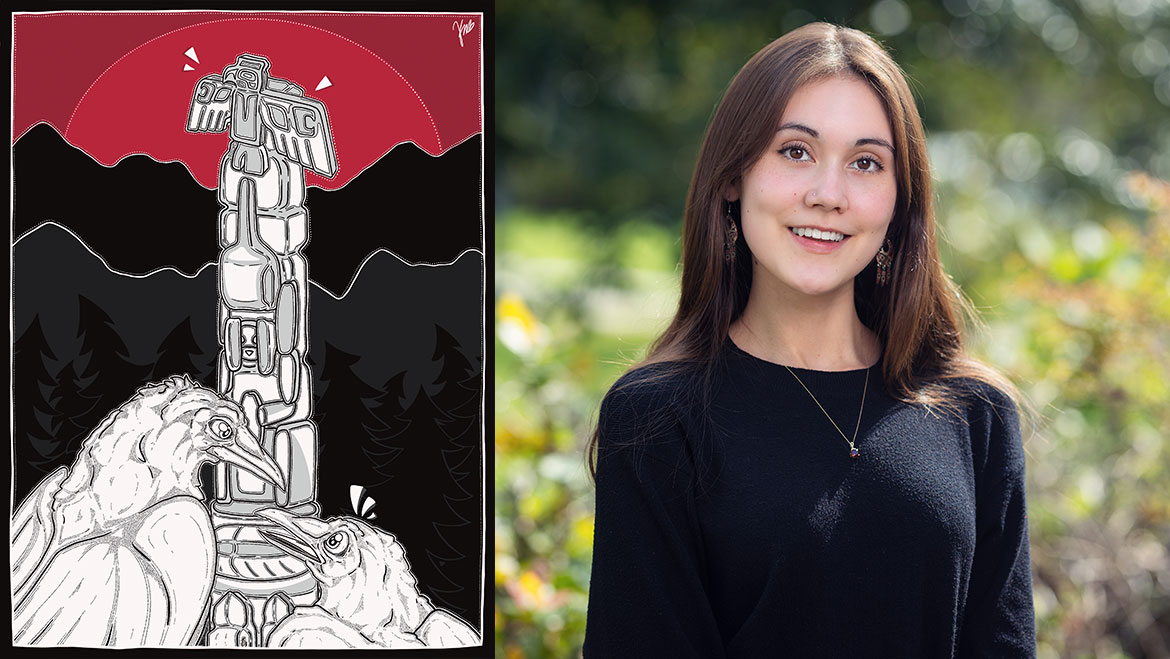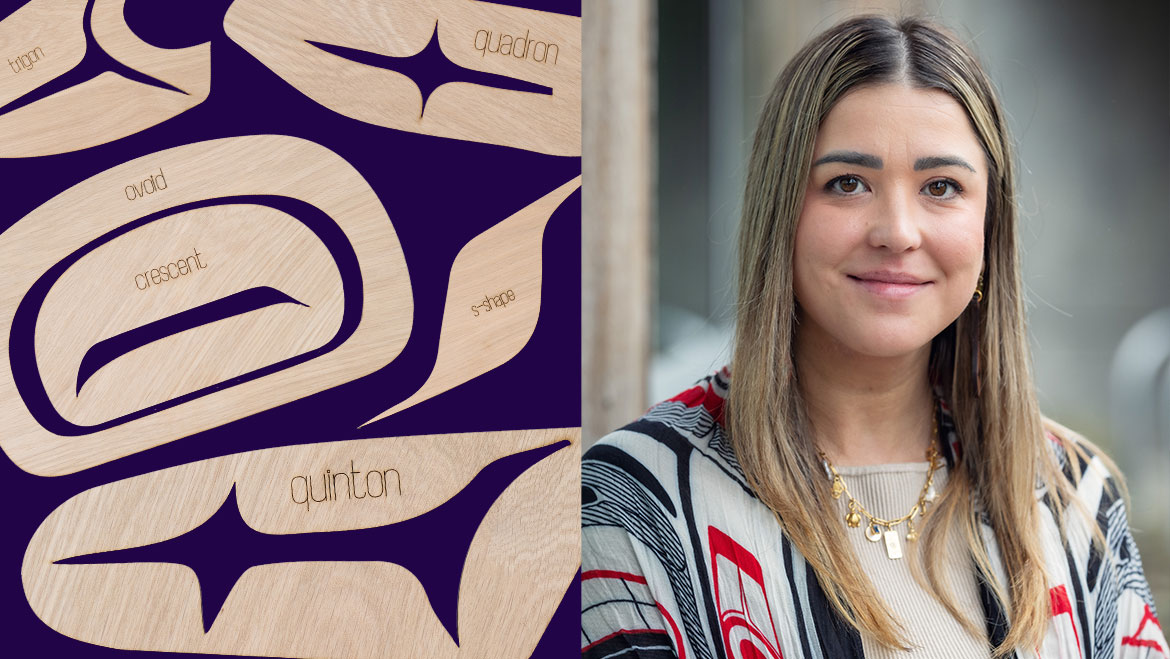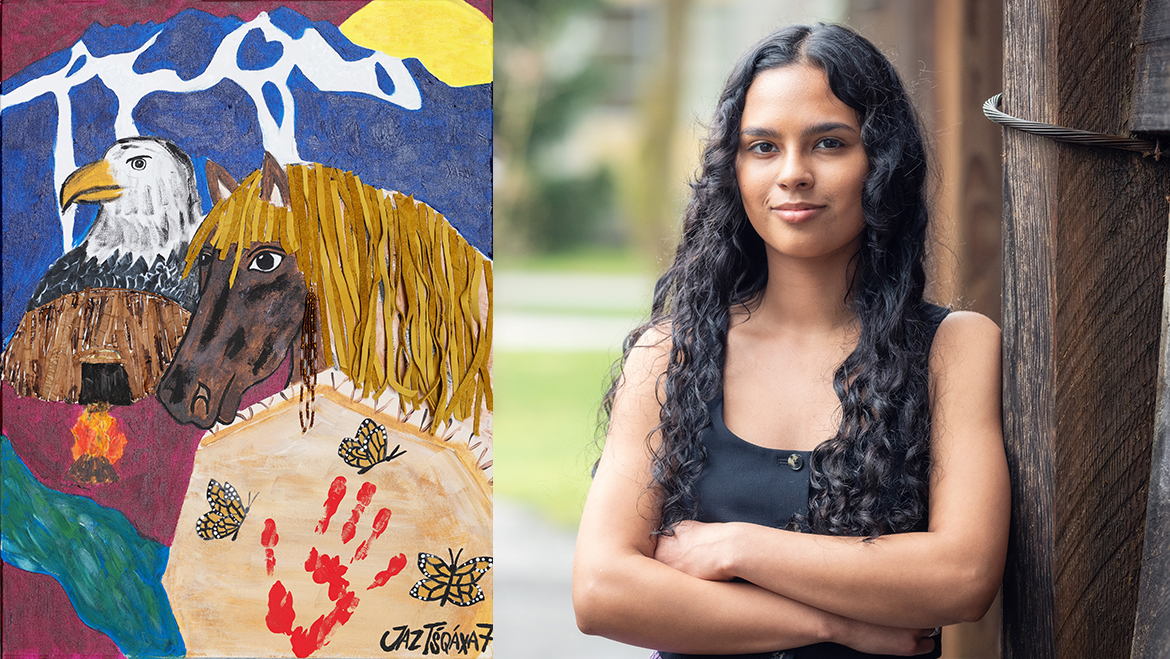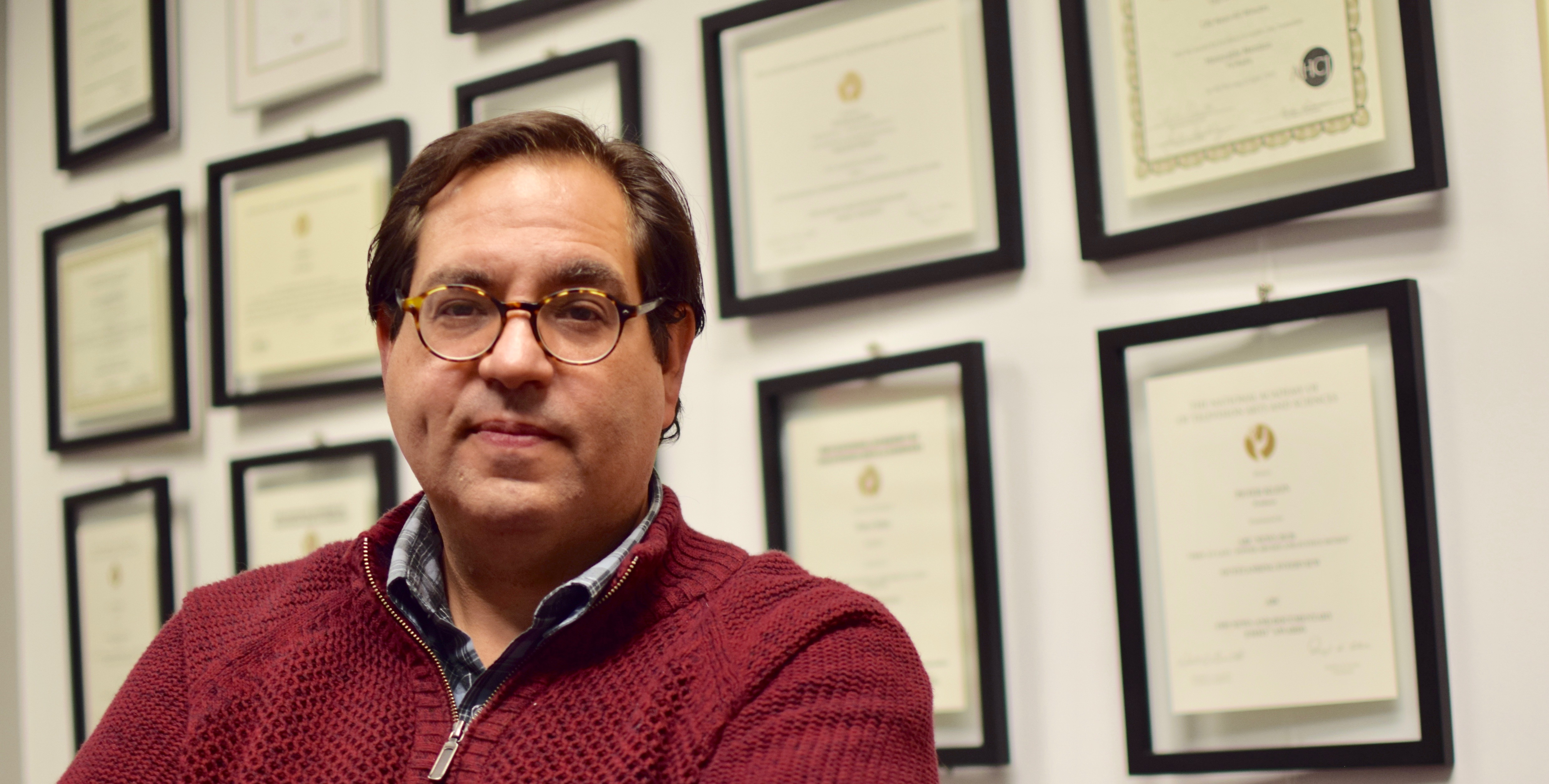

As the director of a $2.5 million SSHRC project, Peter Klein is bringing journalists and scholars together to investigate corruption, labour abuses, and environmental costs in global supply chains.
By Madeleine de Trenqualye
When Peter Klein was a network producer in New York, there was an unwritten rule to avoid interviewing academics. He once produced a documentary on the Shiite insurgency in Iraq and interviewed leaders, clerics, citizens, and finally a scholar to give broader context. When he showed the rough cut to his boss, the reply was: “Great piece. Get rid of the academic.”
“It’s like in a movie—you want characters, you don’t want some pointy-headed academic commenting on the characters,’” says Klein. “That’s generally the attitude.”
But now Klein, an Emmy-award winning journalist who heads UBC’s Global Reporting Centre, not only wants to interview academics — he wants to bring them into the newsroom to collaborate on stories.
As director of a $2.5-million SSHRC project to investigate corruption, labour abuses and environmental costs in global supply chains, Klein is engaging scholars in the entire journalistic process: from identifying what stories to pursue, to contextualizing complex topics, to navigating ethics in the field.
The seven-year-long project is looking at issues like poaching in fisheries, industrial pollution, and the use of slaves in manufacturing. “We are so interconnected through the products we buy,” says Klein. “But most of us have little knowledge of where these products come from, who makes them, and what the hidden costs might be.”
So, with support from UBC’s Research Excellence Clusters Initiative, Klein has pulled together a team of political scientists, economists, geographers, legal scholars and environmental scientists to work hand-in-hand with investigative journalists to tell under-reported stories about those hidden costs in global supply chains.
“Investigating the hidden costs of supply chains is difficult and dangerous,” says political scientist Peter Dauvergne, one of the academics involved. “These costs—what are often crimes—include the illegal logging of rainforests to make cheap pallets to ship TVs, toys, and tea. They include child labour to produce cocoa for chocolate bars. They include laundering blood diamonds and dirty gold as ‘conflict-free’ and ‘responsibly-sourced.’ And they include mislabelling fish as red snapper, cod, tuna, and sole to conceal illegal fishing.”
Dauvergne hopes that teaming up with journalists will enable a thorough and far-reaching exposition of the dark shadows of global consumption. “Together, we’ll be able to explain more comprehensively why these hidden social and environmental costs are so pervasive, and, most importantly, what we can do to eliminate them from what we all eat, buy, and use.”
Klein says the partnership gives scholars an opportunity to take their research beyond an elite academic environment and bring it to a mass audience using engaging storytelling and investigative reporting techniques, but in a way that gives them agency. “They’re not just giving one quote and hoping that the journalist gets it right,” says Klein. “They’re actually part of the original conversation and the design of the research.”
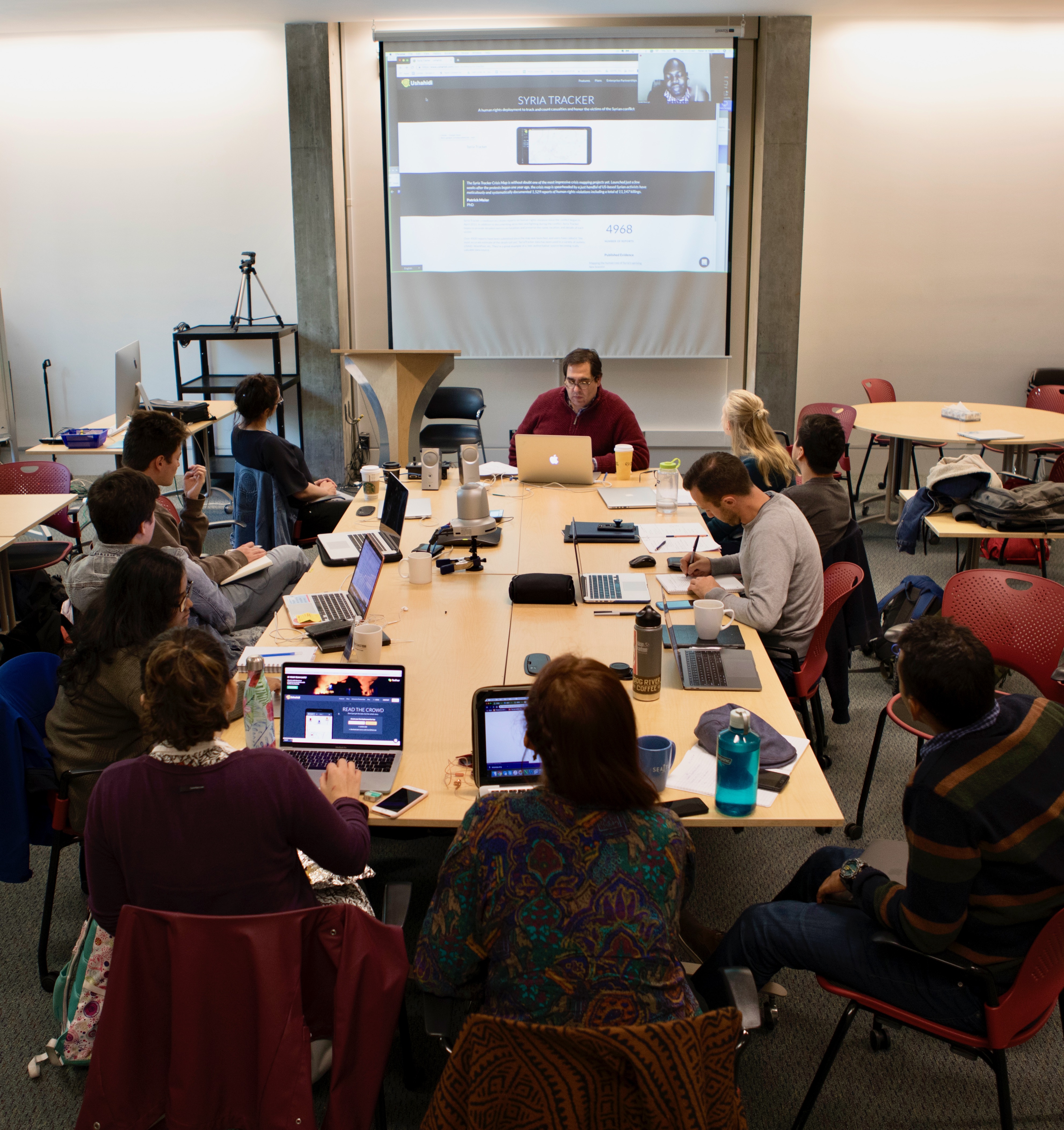

This year, Klein is working with UBC students from Journalism, Oceans & Fisheries, and Medicine, as well as policy and journalism students at global universities in the SSHRC Partnership, to investigative corruption in global fisheries.
Academics in the newsroom
Klein has a track record of facilitating ambitious, large-scale partnerships between scholars, reporters and major media organizations. When he launched the Global Reporting Centre at UBC, it was with the aim of bringing top scholars and reporters from around the world together and experimenting with new ways of gathering and disseminating stories about under-reported global issues. So far, the reporting centre’s projects have been published in The New York Times, Al Jazeera, BBC News, Toronto Star, Reveal, and CNN. Past projects have won some of the top awards in global journalism.
The Centre grew out of an International Reporting class Klein developed at the Graduate School of Journalism ten years ago. In 2012, his students travelled to Cameroon, Indonesia and the Russian Far East to produce an award-winning New York Times interactive project on illegal logging. At the time, Klein asked Peter Dauvergne and Liu Scholar Jane Lister, who had just co-written the book Timber (2011, Polity), to help the class understand the complexities of timber poaching and smuggling. “Having their involvement, as well as the participation of forestry scholars on campus, really deepened the reporting our students were able to do in the field,” says Klein. “And they helped keep our reporting accurate and honest.”
Klein and his students have also reported on shrimp production in Thailand, clashes with Indigenous communities over farmland in Brazil, and the hazards of electronic waste exports to Asia and Africa. “One day Peter [Dauvergne] noted the work we had been doing on ‘supply chains.’ I wasn’t exactly sure what he was talking about,” says Klein. “I’m just a journalist. I was looking at good stories, interesting undercovered stories, but he looked at it from the standpoint of political scientist and really highlighted that there is sort of a pattern here in our reporting… these externalities of global commerce.”
With an interesting theme identified, Klein decided to bring other academics into the fold to dig deeper into the hidden costs of global commerce. “We realized there was a concentration of other world-class scholars at UBC researching various aspects of global supply chains,” says Klein. Those included geographers Jamie Peck and Philippe Le Billon – respectively experts in the labour and environmental impacts of trade, Daniel Pauly who tracks overfishing around the world, and legal scholar Natasha Affolder who investigates international treaties.
Research director Jane Lister then sought out other top academics from around the world, while Klein tapped his deep well of media contacts, including Pulitzer Prize-winning journalists Martha Mendoza and Walt Bogdanich. They also enlisted the support of research service organizations like Panjiva, which has customs and shipping data to help trace global supply chains, and Google News Lab, which will help team members build new tools to advance their research.
The team will produce three original documentaries on the three stages of supply chains—production, shipping and distribution—and the project will conclude with a travelling exhibition in a shipping container, created in partnership with the Centre for Digital Media, Emily Carr School of Art + Design, and the National Film Board of Canada. Hidden Costs has signed partnership agreements with The New York Times, PBS FRONTLINE, Toronto Star, Canadian Broadcasting Corporation, NBC News, and Smithsonian Channel. These partners will provide additional funding and support for reporting projects, and will distribute the content, which will include documentaries, newspaper series and digital projects.
Klein says an overarching goal is to build awareness for consumers, so they can be better positioned to highlight these concerns with both companies and governments around the world.
“The reason that a lot of this shady stuff goes on in supply chains is because they know they can get away with it, because consumers don’t really think about where their products come from,” says Klein. “Our goal is ultimately to raise awareness about how interconnected we all are, and the implications of our consumerism on communities and ecosystems on the other side of the world.”
Learn more about the Hidden Costs project on the Global Reporting Centre website.
